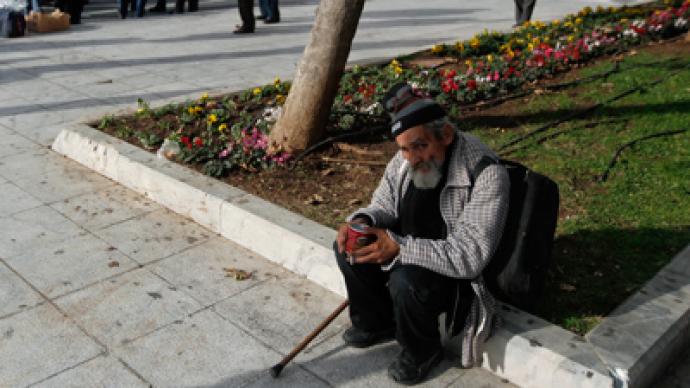Middle-class Greeks to fork out over 40% of annual salary in tax

Athens passed new tax increases to boost revenue by US$3 billion to keep in line with previous commitments to creditors. The new measures limit family benefits and force the middle class to pay over 40 per cent of their annual salary in taxes.
Greek’s Conservative-led coalition has passed the new tax increases to middle and high-income earners, self-employed and businesses. The new law increases the amount of income tax paid by those earning more than US$26,000 a year, limits tax benefits for having children, revokes tax breaks for farmers and increases corporate tax to 26 per cent from 20 per cent.It also increased top income tax rate to 42 per cent from 40 per cent for Greeks earning more than US$56,000 a year, which is the higher-end of middle class average in Greece. The new law was part of an overall package approved past November in order to qualify Greece for more bailouts in the future. It aims to save Greece up to US$3 billion in 2013.If the new tax changes would not have been passed, then Greece would not qualify for more bailout money to be transferred and the nation would have fallen short of paying its own bills. Finance Minister Yannis Stournaras stated in the parliament that he had no other options and that the bill needed to be approved. “Otherwise, we would have had to have saved that 2.3 billion euro [US$3 billion] through salary and pension cuts," he said. "But we are making the savings in a socially just fashion.” The opposition argues that the changes would negatively impact Greek citizens by putting more pressure on an already-stricken middle class. But the conservative-led government assures that the changes will lessen the burden for salary earners and pensioners making less than US$33,000 a year.“We are not in favor of taxes,” Deputy Finance Minister Giorgos Mavraganis stated. “But in the current situation we must lead the country out of its impasse. Once we achieve stability we will proceed to cut taxes and simplify the system.”
Greek’s financial crisis dilemmaSince 2009 when Greece’s economy began falling apart under its huge debt burden the country has become dependent on international rescue loans with a total of 240 billion euro provided to Athens. As of now, 149 billion euro has been distributed to Greece from the Troika of international lenders.Just last month Greece has received another US$45.5 billion in frozen loans and now with the passage of the new tax bill it is on track to get another US$19.9 billion in the next few months. Athens was forced to implemented harsh austerity measures to reduce deficit and bring down the debt level.Trying to hold control of the economy at the end of 2012 Greece adopted a 2013 budget that involves 9.4 billion euro of spending cuts, mainly in state wages, pensions and benefits, all of which have already been significantly reduced over the past two years.The decision resulted in strikes and protest across the country. Tough austerity measures have also led to a drastic surge of unemployment – in September 2012 it reached a record 26 per cent, which is one of the lowest levels amongst the EU nations.














